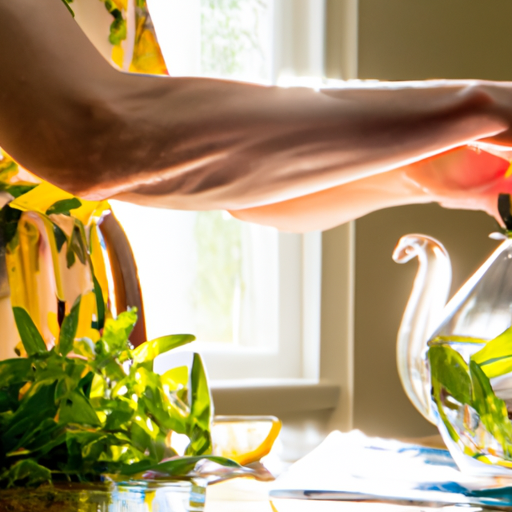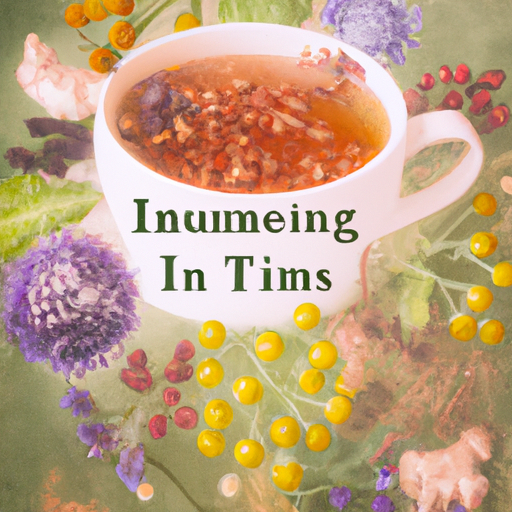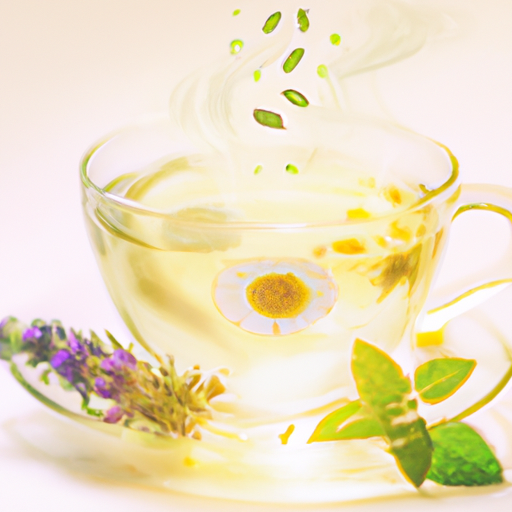Did you know that approximately 75% of pregnant women consume herbal tea during their pregnancy? It’s true! Herbal teas have gained popularity among expectant mothers as a soothing and natural remedy for various pregnancy discomforts.
However, not all herbal teas are safe to consume during pregnancy, as they may pose potential risks to both the mother and the developing baby. In this article, I will guide you through the kinds of herbal teas that should be avoided during pregnancy to ensure a healthy and safe journey for you and your little one.
We will explore teas such as black and green teas, peppermint tea, chamomile tea, licorice root tea, raspberry leaf tea, sage tea, and nettle tea. By understanding which herbal teas to avoid, you can make informed choices and prioritize the well-being of both you and your baby.
So, let’s dive in and discover the herbal teas that are best left off the menu during pregnancy.
Key Takeaways
- Black and green teas should be avoided due to their caffeine content
- Chamomile tea should be consumed in moderation due to its potential to stimulate the uterus and increase the risk of preterm labor
- Licorice root tea should be consumed in moderation and with caution due to its potential to increase blood pressure and deplete potassium levels
- Sage tea should be avoided due to its potential to stimulate the uterus and cause complications
Black and green teas
You’ll want to steer clear of black and green teas when you’re pregnant, as they contain caffeine that can potentially harm your developing baby. Caffeine is a stimulant that can cross the placenta and affect your baby’s heart rate and metabolism.
While small amounts of caffeine are generally considered safe during pregnancy, it’s recommended to limit your intake to no more than 200 milligrams per day. A cup of black or green tea typically contains about 40-70 milligrams of caffeine, so it’s important to be mindful of how much you consume.
Instead of black or green teas, consider opting for herbal teas that are naturally caffeine-free, like peppermint tea. Peppermint tea can help with digestion and soothe nausea, making it a great choice for pregnant women.
Peppermint tea
Can peppermint tea be harmful during pregnancy? The answer is no. In fact, peppermint tea can actually be quite beneficial for expectant mothers. Here are four reasons why peppermint tea is safe and even recommended during pregnancy:
-
Soothes digestion: Peppermint tea can help relieve common pregnancy discomforts like indigestion and nausea.
-
Antibacterial properties: Peppermint tea has natural antibacterial properties that can help fight off infections and boost the immune system.
-
Relieves stress and anxiety: The refreshing aroma of peppermint tea can help calm the mind and reduce stress and anxiety, which are common during pregnancy.
-
Promotes relaxation: Peppermint tea has a natural calming effect on the body, making it a great choice for pregnant women who’re looking for ways to relax.
Now, let’s move on to the next topic: chamomile tea.
Chamomile tea
Indulging in a warm cup of chamomile tea is a delightful way to unwind and promote relaxation during pregnancy. Chamomile, derived from the daisy-like flowers of the chamomile plant, has been used for centuries as a natural remedy for various ailments. However, it is important to exercise caution when consuming chamomile tea while pregnant.
Although chamomile tea is generally considered safe, it is recommended to limit its consumption during pregnancy. This is because chamomile tea contains certain compounds that may stimulate the uterus and potentially lead to complications. Moreover, some studies suggest that chamomile tea may increase the risk of preterm labor.
To provide a clearer picture, here is a table summarizing the potential effects of chamomile tea during pregnancy:
| Potential Effects of Chamomile Tea During Pregnancy |
|---|
| Uterine Stimulation |
| Preterm Labor Risk |
| Allergic Reactions |
| Interference with Blood Thinners |
Moving forward, let’s explore the next subtopic: licorice root tea.
Licorice root tea
Licorice root tea, with its sweet and earthy flavor, can be a comforting ally during pregnancy, gently soothing the senses like a warm embrace on a chilly day. However, it’s important to consume this herbal tea in moderation and with caution.
Licorice root contains a compound called glycyrrhizin, which, when taken in large amounts, may lead to an increase in blood pressure and a depletion of potassium levels. These effects can be harmful to both the mother and the developing baby. It’s advisable to consult with a healthcare professional before including licorice root tea in your pregnancy diet.
Additionally, if you have a history of high blood pressure, diabetes, or any kidney or liver issues, it’s best to avoid licorice root tea altogether.
Now, let’s move on to the next herbal tea to consider during pregnancy: raspberry leaf tea.
Raspberry leaf tea
If you’re looking for a comforting and nourishing drink during pregnancy, raspberry leaf tea may be just what you need. This herbal tea has been used for centuries to support women’s health, particularly during pregnancy and childbirth. Here are some key benefits of raspberry leaf tea:
-
Strengthens the uterus: Raspberry leaf tea is believed to tone the uterine muscles, which may help with labor and delivery.
-
Rich in nutrients: This herbal tea is packed with essential vitamins and minerals, including vitamin C, vitamin E, magnesium, and potassium.
-
Supports digestion: Raspberry leaf tea can help alleviate common pregnancy discomforts like constipation and indigestion.
-
Promotes relaxation: Drinking raspberry leaf tea may help calm the mind and body, reducing stress and promoting a sense of well-being.
As we move on to discussing sage tea, it’s important to note that some herbal teas are not recommended during pregnancy due to their potential effects on the baby’s development.
Sage tea
Sage tea, with its aromatic and earthy flavor, transports me to a cozy herbal haven, offering a unique and invigorating experience for my taste buds.
This herbal tea is known for its medicinal properties, but it’s advised to avoid it during pregnancy. Sage contains thujone, a compound that can stimulate the uterus and potentially cause contractions, leading to complications.
While it’s generally safe to consume sage in small amounts as a seasoning during pregnancy, drinking sage tea in larger quantities is not recommended. It’s always best to consult with a healthcare professional before adding any new herbal tea to your pregnancy diet.
Now, let’s move on to the next subtopic, nettle tea, which has its own set of considerations for pregnant women.
Nettle tea
Nettle tea, with its vibrant green hue and delicate earthy taste, transports me to a serene forest clearing, where the gentle breeze carries the whispers of nature’s healing powers.
While many herbal teas are safe during pregnancy, nettle tea is one that should be avoided. Despite its reputation as a nutritive tonic, nettle tea contains compounds that can stimulate the uterus and potentially lead to miscarriage or premature labor.
This tea is known for its diuretic properties, which can increase the frequency of urination and potentially cause dehydration during pregnancy.
Additionally, nettle tea may interact with certain medications, such as blood thinners or drugs for high blood pressure.
It’s always best to consult with a healthcare professional before consuming herbal teas during pregnancy to ensure the safety of both mother and baby.
Frequently Asked Questions
Can I drink black or green tea in moderation while pregnant?
Yes, you can drink black or green tea in moderation while pregnant. However, it’s important to limit your caffeine intake and consult with your healthcare provider for personalized advice regarding your pregnancy.
Is it safe to consume peppermint tea during pregnancy?
Peppermint tea is generally considered safe to consume during pregnancy. However, it’s always best to consult with your healthcare provider to ensure it’s suitable for you and your baby’s specific needs.
What are the potential risks of drinking chamomile tea while pregnant?
Drinking chamomile tea while pregnant can have potential risks. It may cause uterine contractions, leading to preterm labor or miscarriage. It is best to avoid chamomile tea during pregnancy to ensure the safety of both the mother and baby.
Can licorice root tea be harmful to the baby during pregnancy?
Licorice root tea should be avoided during pregnancy due to its potential harmful effects on the baby. Studies have shown that consuming large amounts of licorice during pregnancy is associated with increased risk of preterm birth and developmental issues in infants.
Is it safe to consume nettle tea during pregnancy?
Yes, it is safe to consume nettle tea during pregnancy. Nettle tea is rich in vitamins and minerals that can support a healthy pregnancy. However, it is always advisable to consult with a healthcare professional before adding any new herbal tea to your diet during pregnancy.
Conclusion
In conclusion, when it comes to herbal tea during pregnancy, it’s crucial to make informed choices. While black and green teas can be enjoyed in moderation, it’s best to avoid peppermint, chamomile, licorice root, raspberry leaf, sage, and nettle teas. These teas may have potential effects on pregnancy and should be approached with caution. Just like navigating a delicate path, it’s essential to tread carefully and prioritize the well-being of both mother and baby.










